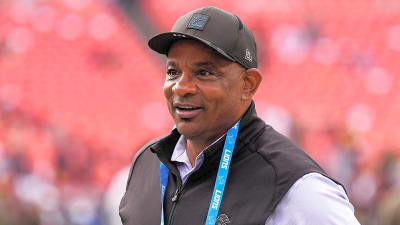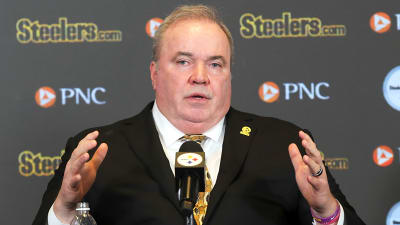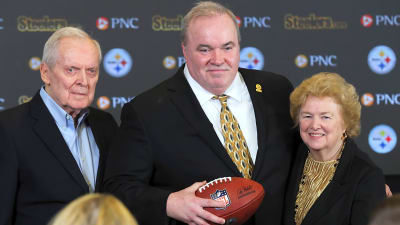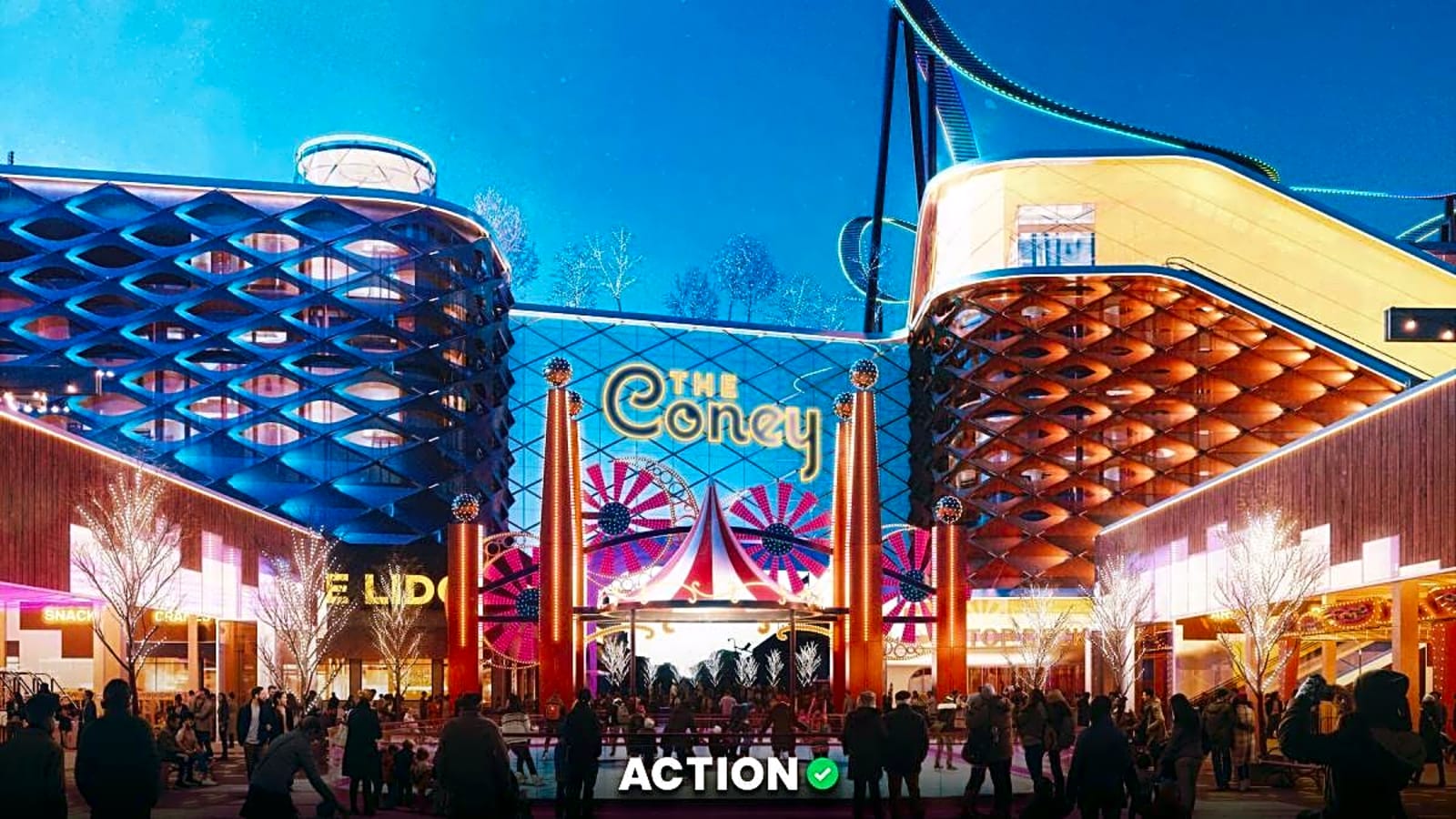
Pictured: A casino may be coming to Coney Island now that a land-use agreement has passed. (Image Courtesy: Thor Equities)
The Coney Island Casino plan is starting to take shape.
In a significant development for the proposed $3.4 billion casino and entertainment complex, The Coney, the New York City Council has overwhelmingly approved its land use application.
The Council approved the measure with a 36 to 11 vote, while four members abstained. This decision allows The Coney to modify part of Bowery Street and purchase unused air rights above the streets and buildings, paving the way for the construction of three high-rise towers and two pedestrian bridges.
This approval moves the project closer to reality, promising thousands of jobs, new public spaces, and a significant economic boost for Brooklyn, even though the Land Use Committee had previously voted against key changes in February. The Coney is competing with seven other projects for one of three downstate casino licenses in New York.
What Is the Coney Project?
The Coney is a partnership involving Global Gaming Solutions (the Chickasaw Nation’s business arm), Thor Equities, Saratoga Casino Holdings, and Legends. Their vision for Coney Island includes:
-
A 500-room hotel
-
20 restaurants covering over 50,000 square feet
-
A 2,400-seat entertainment venue
-
92,000 square feet of convention and meeting space
-
Over an acre of new public open space
The Coney is expected to create 4,000 union construction jobs and more than 4,500 permanent careers, with a strong focus on hiring locally and supporting minority- and women-owned businesses.
The developers estimate the complex will generate over $1.27 billion in annual economic impact, with $1.13 billion benefiting Brooklyn directly. It’s also projected to bring in more than $300 million in annual tax revenue and create a $200 million community trust fund led by local residents.
Community Reaction to Coney Island Casino Is Mixed
Supporters say The Coney will transform the neighborhood by creating jobs, boosting local businesses, and funding much-needed upgrades to public spaces and infrastructure. Over 10,000 signatures have been collected and 600 letters of support received from NYCHA residents.
However, some local groups and residents remain concerned about increased traffic, potential crime, and the risk of losing Coney Island’s historic character and small businesses. The debate is ongoing as the state licensing decision approaches.
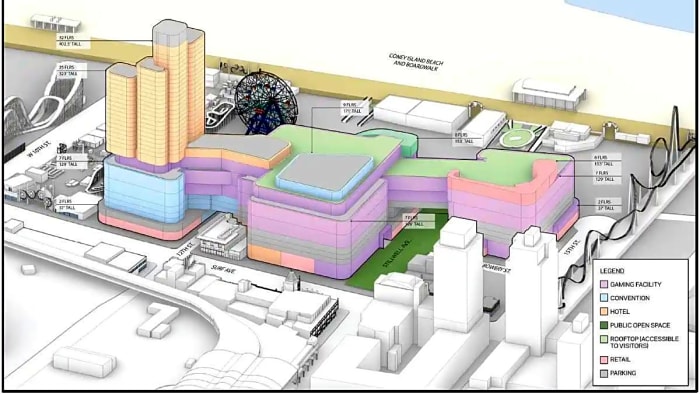
Other residents believe that building the casino could threaten their jobs and way of life.
Coney Island USA, known for attractions like the Circus Sideshow, the Coney Island Museum, the Freak Bar, and the Mermaid Parade, is located on the corner of one of the blocks that have been given a new zoning designation. If the casino were built, it would be right on top of the Coney Island USA headquarters.
Adam Rinn, who is the artistic director at Coney Island USA, expressed his disappointment about the vote in an interview with The Brooklyn Paper.
“It’s disappointing that we have elected officials who are here to represent the people. And let’s be clear about that word: The people. Their constituents, not the folks with big money, not the developers,” he said. “We have over 20,000 signatures opposing this casino project. And the nerve, the nerve of these elected (officials) to not take that into consideration. This is not a project that is here to help, this is a project that is set to destroy.”
Coney Island Casino Plan Continues To Pass Tests
The Coney Island casino plan faced its first major public test with Brooklyn Community Board 13, which includes Coney Island, Brighton Beach, Gravesend, and Sea Gate. The board voted against the land use application (ULURP), but this vote was only advisory and did not stop it from moving forward.
At that time, committee member Angela Kravtchenko said, “We don’t need more traffic, more gambling, more crime.” And Brooklyn resident Ed Dutchmazz told WPIX News, “It’s the scale of it and changing the fundamental reasons of why you come down here.”
The application moved to the Brooklyn Borough President and then to the New York City Planning Commission. Despite some commissioners raising concerns about public amenities, flood risks, and design choices, the commission approved the plan in May 2025.
What Happens Next With The Coney Island Casino Plan?
The vote doesn’t guarantee that The Coney will be built.
With the land use hurdles cleared, The Coney now enters the state licensing phase. The future of the Coney Island casino depends on winning one of three highly competitive casino licenses.
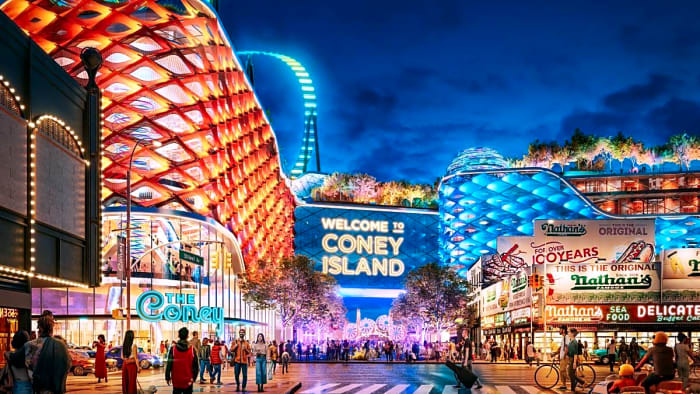
Last week, eight different casino groups, including The Coney, sent in their applications to the state’s Gaming Facility Location Board.
Each application will be looked over by a Community Advisory Committee, which is made up of six members chosen by local officials. In New York, Community Advisory Committees (CACs) and Community Advisory Boards (CABs) are established to provide community input and feedback on various plans and initiatives. These groups play a crucial role in ensuring that local needs and concerns are considered in decision-making processes.
Each Committee must hold at least two public meetings and has to make a final decision on the applications by September 30. Only applications that get support from at least two-thirds of the Committee members will move forward for consideration by the Board.
Here’s a look at some of the key deadlines that have already been met, and those that are still impending:
- June 27, 2025: Deadline for developers to submit their final casino license applications to the New York State Gaming Facility Location Board.
-
June 30, 2025: The New York City Council gave its final and overwhelming approval for the land use application, clearing the way for The Coney to proceed with its vision for a flood-resistant, pedestrian-friendly development.
-
September 30, 2025: Deadline for meeting Community Advisory Committee requirements.
-
December 2025: The state is expected to announce which projects will receive one of only three available downstate casino licenses. The Coney is competing with seven other proposals from major players like Caesars, who wants to put a casino in Times Square. MGM is hoping to get a license so it can build a casino and entertainment district in Yonkers. Mets Owner Steve Cohen is also vying for a license, so he can put a casino next to Citi Field.
If The Coney team is successful, the developers have pledged a $200 million community trust to support local improvements, economic mobility, and community engagement efforts. There’s also a $15 million annual fund promised for local police, fire, and EMS services. The final decision on the licenses will be announced at the end of this year.
More must-reads:
Breaking News
Trending News
Customize Your Newsletter
 +
+
Get the latest news and rumors, customized to your favorite sports and teams. Emailed daily. Always free!

